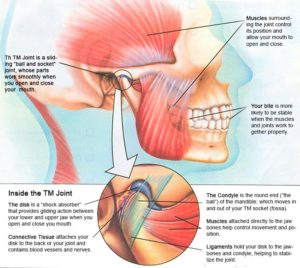
Jaw pain can be debilitating, so you want to know what’s causing it. Many common causes of jaw pain are a jaw injury, a herniated jaw, or an abnormality in the joint itself. However, there are also many other possible causes of jaw pain, such as: tension in the neck and head, arthritis, osteoporosis, tumors, infections, and even allergies. Here are some of these causes of jaw pain:
Temporomandibular Joint syndrome
Temporomandibular Joint syndrome (also known as TMJ) is an inflammation of the temporomandibular joints. The pain is often in the front of your head, or just below the ear. The cause is usually unknown, and TMJ is not always treatable with surgery. It occurs when your muscles around the temporomandibular joints become very tight or tense, resulting in painful jaw muscles and joints. TMJ can lead to headaches, loss of sleep, and tooth loss.
Temporo mandibular neuromuscular disorder
Temporo mandibular neuromuscular disorder
(TMMN), also called TMJ but is different from it in that it involves a disorder of the muscles around the TMJ joint. The pain is often located behind the ear, near the bridge of the nose, or behind the lower teeth. The cause is unknown, although there is some evidence that TMMN can be caused by an injury or an infection. TMJ can be severe enough to affect your daily life and cause extreme pain. For some people it may be difficult to get out of bed or eat, and eating can be a real struggle. There are medications available to help reduce the pain, and there is an option of surgery if the pain is severe enough.
Jaw ache
The symptoms of jaw ache include pain that begins near the base of the skull and spreads down the side of the face. If this pain is severe or prolonged, it can spread into the jaw bone. Some cases of jaw ache can also spread down into the neck. These symptoms of pain vary according to how severe the pain actually is, and sometimes they can occur in conjunction with symptoms of a more serious condition.
Jaw pain can also be accompanied by facial swelling, difficulty chewing, or swallowing, difficulty speaking, and pain while chewing. Some people may experience numbness or tingling sensations near their jaw. Sometimes it is mistaken for a more serious problem, such as a cold or flu, and treated accordingly. Other symptoms can include excessive chewing and inability to open the mouth fully, or when opening and closing the mouth during speech.
One thing that you can do to help relieve some of the symptoms of jaw ache is to try to keep your jaw open at all times, especially when talking. You may need to open your mouth wide to make sure that the air passage is clear. Also, make sure to use good oral hygiene. Brush your teeth regularly with fluoride toothpaste and floss to remove food residue and plaque from your teeth. Make sure that you have a regular dental cleaning.
Other ways to help alleviate pain are: using heat, applying ice on your face, and using oral irrigation. You can also use a cold compress to relieve the pain in the cheeks and jaw area, but don’t overdo it. It’s important to always follow a dental care routine. Follow a healthy diet and avoid using tobacco products to reduce bacteria buildup in the mouth. Smoking increases the risk of gum disease and may cause the formation of tartar, which is a thin white film that can become hard to remove with brushing.
To relieve the symptoms of jaw ache, it is important to stay healthy and take care of yourself. This can help to reduce the severity of the symptoms and even cure the condition completely.